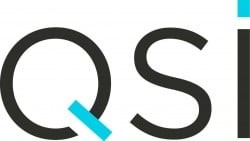 Holderness Investments Co. raised its position in Verizon Communications (NYSE:VZ) by 2.1% during the fourth quarter, according to the company in its most recent disclosure with the Securities & Exchange Commission. The institutional investor owned 85,389 shares of the cell phone carrier’s stock after buying an additional 1,783 shares during the period. Verizon Communications accounts for about 2.2% of Holderness Investments Co.’s investment portfolio, making the stock its 7th biggest position. Holderness Investments Co.’s holdings in Verizon Communications were worth $4,520,000 at the end of the most recent reporting period.
Holderness Investments Co. raised its position in Verizon Communications (NYSE:VZ) by 2.1% during the fourth quarter, according to the company in its most recent disclosure with the Securities & Exchange Commission. The institutional investor owned 85,389 shares of the cell phone carrier’s stock after buying an additional 1,783 shares during the period. Verizon Communications accounts for about 2.2% of Holderness Investments Co.’s investment portfolio, making the stock its 7th biggest position. Holderness Investments Co.’s holdings in Verizon Communications were worth $4,520,000 at the end of the most recent reporting period.
A number of other large investors have also recently added to or reduced their stakes in the business. BlackRock Inc. raised its stake in shares of Verizon Communications by 0.8% in the fourth quarter. BlackRock Inc. now owns 265,904,768 shares of the cell phone carrier’s stock worth $14,074,340,000 after acquiring an additional 2,236,290 shares during the last quarter. Bank of New York Mellon Corp raised its stake in shares of Verizon Communications by 14.1% in the fourth quarter. Bank of New York Mellon Corp now owns 48,749,993 shares of the cell phone carrier’s stock worth $2,580,337,000 after acquiring an additional 6,007,544 shares during the last quarter. Geode Capital Management LLC raised its stake in shares of Verizon Communications by 3.2% in the fourth quarter. Geode Capital Management LLC now owns 41,135,441 shares of the cell phone carrier’s stock worth $2,172,530,000 after acquiring an additional 1,282,685 shares during the last quarter. Legal & General Group Plc raised its stake in shares of Verizon Communications by 2.7% in the third quarter. Legal & General Group Plc now owns 24,495,234 shares of the cell phone carrier’s stock worth $1,212,227,000 after acquiring an additional 636,014 shares during the last quarter. Finally, Schwab Charles Investment Management Inc. raised its stake in shares of Verizon Communications by 6.2% in the fourth quarter. Schwab Charles Investment Management Inc. now owns 21,390,896 shares of the cell phone carrier’s stock worth $1,132,221,000 after acquiring an additional 1,250,691 shares during the last quarter. Hedge funds and other institutional investors own 63.81% of the company’s stock.
Get Verizon Communications alerts:In other Verizon Communications news, SVP Anthony T. Skiadas sold 1,974 shares of the company’s stock in a transaction that occurred on Tuesday, May 1st. The shares were sold at an average price of $49.44, for a total value of $97,594.56. Following the completion of the sale, the senior vice president now owns 16,060 shares of the company’s stock, valued at $794,006.40. The sale was disclosed in a legal filing with the Securities & Exchange Commission, which can be accessed through the SEC website. 0.09% of the stock is currently owned by corporate insiders.
Shares of NYSE:VZ opened at $48.52 on Tuesday. Verizon Communications has a 52 week low of $42.80 and a 52 week high of $54.77. The company has a quick ratio of 0.94, a current ratio of 0.98 and a debt-to-equity ratio of 2.15. The company has a market capitalization of $200.29 billion, a price-to-earnings ratio of 12.97, a PEG ratio of 1.94 and a beta of 0.62.
Verizon Communications (NYSE:VZ) last issued its earnings results on Tuesday, April 24th. The cell phone carrier reported $1.17 EPS for the quarter, beating the Thomson Reuters’ consensus estimate of $1.11 by $0.06. Verizon Communications had a net margin of 24.37% and a return on equity of 42.62%. The firm had revenue of $31.77 billion during the quarter, compared to the consensus estimate of $31.25 billion. During the same quarter in the prior year, the firm earned $0.95 earnings per share. The business’s quarterly revenue was up 6.6% on a year-over-year basis. research analysts anticipate that Verizon Communications will post 4.57 EPS for the current year.
The company also recently announced a quarterly dividend, which was paid on Tuesday, May 1st. Shareholders of record on Tuesday, April 10th were paid a $0.59 dividend. This represents a $2.36 annualized dividend and a yield of 4.86%. The ex-dividend date was Monday, April 9th. Verizon Communications’s payout ratio is presently 63.10%.
A number of brokerages have weighed in on VZ. Vetr downgraded shares of Verizon Communications from a “strong-buy” rating to a “buy” rating and set a $52.49 target price for the company. in a research note on Tuesday, April 3rd. William Blair reaffirmed a “market perform” rating on shares of Verizon Communications in a research note on Wednesday, April 25th. Zacks Investment Research downgraded shares of Verizon Communications from a “buy” rating to a “hold” rating in a research note on Monday, March 12th. JPMorgan Chase & Co. raised shares of Verizon Communications from a “neutral” rating to an “overweight” rating and set a $58.00 price target for the company in a research note on Friday, May 11th. Finally, Guggenheim started coverage on shares of Verizon Communications in a research note on Tuesday, March 13th. They set a “buy” rating and a $58.00 price target for the company. One research analyst has rated the stock with a sell rating, nine have issued a hold rating and sixteen have assigned a buy rating to the company’s stock. The company presently has an average rating of “Buy” and an average target price of $54.75.
About Verizon Communications
Verizon Communications Inc, through its subsidiaries, offers communications, information, and entertainment products and services to consumers, businesses, and governmental agencies worldwide. The company's Wireless segment provides wireless voice and data services; Internet access on various notebook computers and tablets; multimedia, business-focused, and location-based services, as well as international travel services; and network access services to deliver various Internet of Things products and services.
Want to see what other hedge funds are holding VZ? Visit HoldingsChannel.com to get the latest 13F filings and insider trades for Verizon Communications (NYSE:VZ).
 Quality Systems (NASDAQ:QSII) shares saw unusually-strong trading volume on Friday following a stronger than expected earnings report. Approximately 2,338,700 shares changed hands during mid-day trading, an increase of 593% from the previous session’s volume of 337,438 shares.The stock last traded at $16.99 and had previously closed at $15.05.
Quality Systems (NASDAQ:QSII) shares saw unusually-strong trading volume on Friday following a stronger than expected earnings report. Approximately 2,338,700 shares changed hands during mid-day trading, an increase of 593% from the previous session’s volume of 337,438 shares.The stock last traded at $16.99 and had previously closed at $15.05.

 24/7 Wall St.
24/7 Wall St. Denbury Resources (NYSE:DNR) has been assigned an average rating of “Hold” from the twelve brokerages that are currently covering the firm, MarketBeat reports. Three research analysts have rated the stock with a sell rating, eight have given a hold rating and one has given a buy rating to the company. The average 12-month target price among analysts that have issued a report on the stock in the last year is $2.07.
Denbury Resources (NYSE:DNR) has been assigned an average rating of “Hold” from the twelve brokerages that are currently covering the firm, MarketBeat reports. Three research analysts have rated the stock with a sell rating, eight have given a hold rating and one has given a buy rating to the company. The average 12-month target price among analysts that have issued a report on the stock in the last year is $2.07.